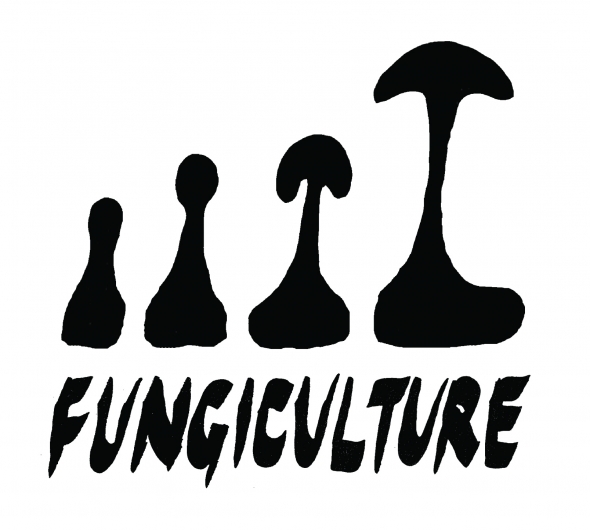Call for submissions for Fungiculture
ISSUE 1: COLLABORATIVE CULTIVATIONS
Fungiculture is the psychedelic journal for cultural studies: a space for the experimental and playful cultivation of ideas and practices, for cross-pollinations amongst theoretical attitudes, for imagining with, between, through, alongside and against the thought of others. In this vein, we are delighted to announce that our first issue, "Collaborative Cultivations," shall explore and galvanize collaboration as methodology and aggregating thread. We invite proposals that are specifically conceived and realized as collaborative efforts in research and speculation, focusing on any subject of interest within the study of culture. Submissions may engage with, but are not limited to discourses surrounding media studies, radical politics, aesthetics, ethics, philosophy, queer and affect theory. The selected projects will be released weekly on the Fungiculture online platform over a set period of time, inhabiting a space of further dialogue and debate. At the end of this period, the projects will be compiled as a pdf anthology available for download.
INSTRUCTIONS
(As most lists of instructions, these are directions either to follow or pretend to follow, existing as restraints that may as well be worked around or against as worked within)
- Each collaborative project shall include the work of at least two contributors concerning the same object of research, theoretical discourse, or methodological concern.
- Authors should respond to each others' perspectives on a common subject, indulging in opportunities for conversation, accumulation, contradiction, interference, paradox, confrontation, friction or, even, agreement.
- Discourses may be executed in parallel, in reaction, in turns, through role reversals and via fictional characterisation.
- The form each project takes can range from interviews and dialogues to co-written essays, collage-like compilations, mosaics, or more unorthodox forms of interaction.
- The intended format should be conceived specifically to engage the subject matter at hand.
- Mixed-media projects are encouraged, and the same project may include text-based contributions, still and moving images, and sound pieces.
- Papers should not exceed 5000 words.
To submit, please send an abstract (not exceeding 500 words), to hello@fufufo.com by 15/6/2014. Please include relevant images and sound samples, if applicable, and the authors' CVs or a description of relevant previous experience. Keep in mind that abstracts must explain not just the topic of interest but also the nature of proposed collaboration and the way this will take form in the project.
FUNGICULTURE'S MISSION STATEMENT
The unpredictable migration of fungal spores is dependent upon the flux of various unseen processes. Once landed, they can either erupt into symbiotic and parasitic germination or remain silent: a source of latent potential. In either case, mycelia maintain and exercise a capacity for transformation with, in, and for the spaces and structures they inhabit.
Fungiculture is the practice of care and cultivation within such an ecology, and Fungiculture, the publication, takes its cues from its namesake. We feel that nascent intellectual thought should be regarded in much the same way as fungal spores: scattered from one location to numerous others, made vulnerable to or strengthened by varying forces along the way, and capable of combining, accumulating and solidifying into hybrid growths. We admire the mushroom for its audacity in the face of adversity; for its ability to adapt and generate unexpected networks; for its courage to inhabit and transform the world’s murkiest corners. Fungiculture crafts an intellectual space in which the unforeseen and unsolicited can flourish and permeate existing theoretical ecologies. We advance attitudes of both nurture and irreverence for intellectual thought: fostering the potency of ideas whilst celebrating their transience, as they scatter, converge upon, and inhabit a range of theories and practices.
Fungiculture in this vein assumes a transdisciplinary approach to cultural research, encouraging the coalescence of discourses that might not naturally be inclined to work together. Founded outside the remit of traditional Academia, we nevertheless hold ourselves and our contributors to equally high standards. Fungiculture is comfortable with being laboratory, greenhouse, mushroom plot; the emphasis here falls on seeing what can grow, and caring for it.
Mute Books Orders
For Mute Books distribution contact Anagram Books
contact@anagrambooks.com
For online purchases visit anagrambooks.com







